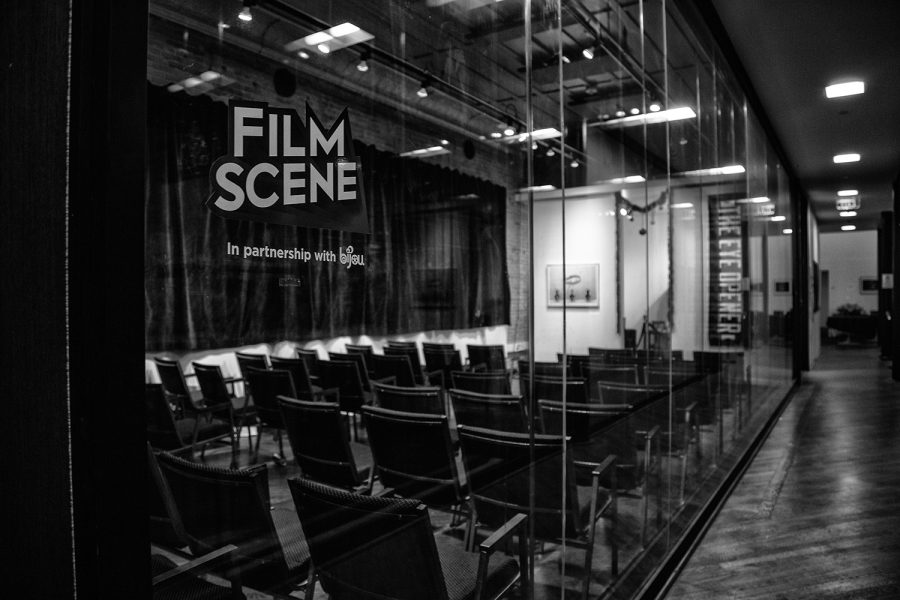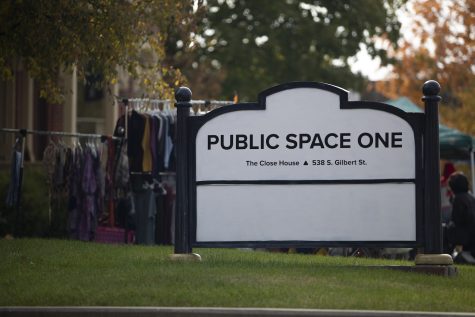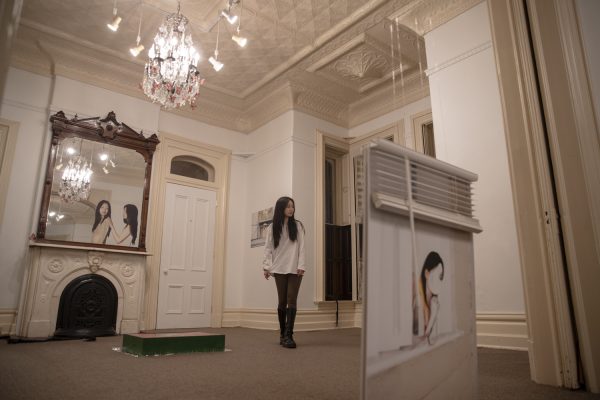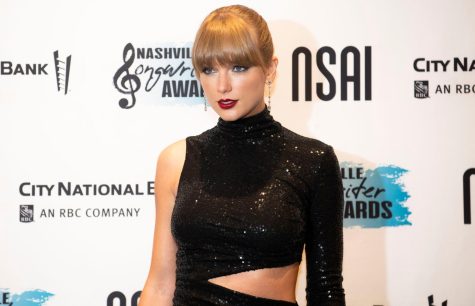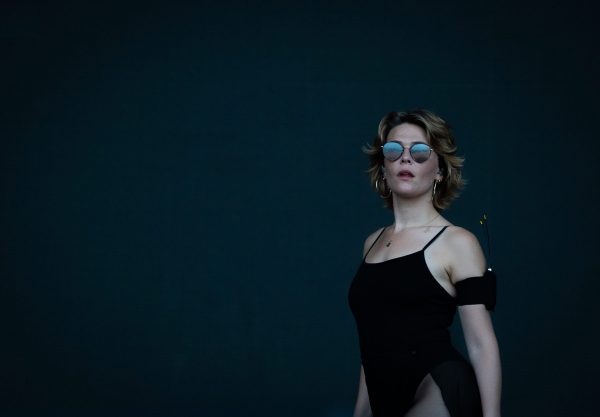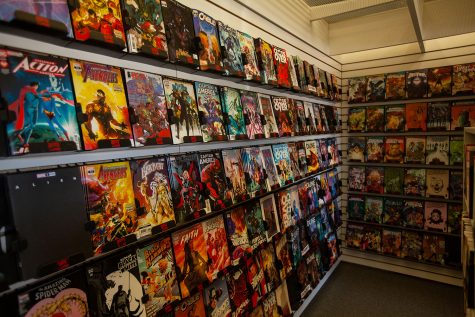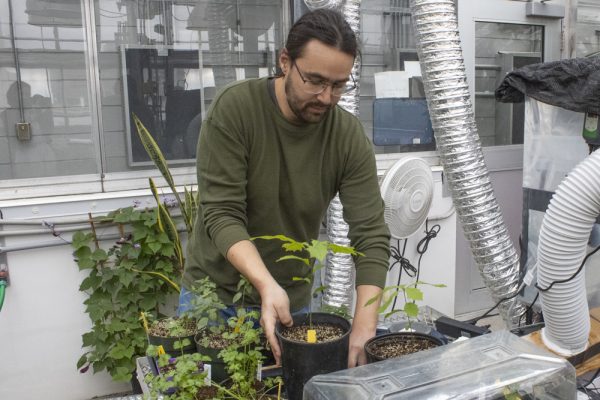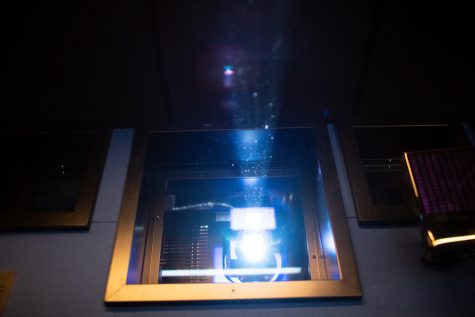ICDocs to showcase 41 short films from around the world
The student-run festival will take place during the April 18-20 weekend.
April 4, 2019
For one weekend in April, Iowa City becomes a crossroads for filmmakers and cinephiles to experience must-see short films from around the world.
The Iowa City International Documentary Film Festival, known affectionately as ICDOCS, announced its 2019 lineup last week. Every screening and event of the festival is free to the public.
The student-run festival is based on an undergraduate class in which students are split into committees on programming, design, and outreach, overseen by filmmaker and Assistant Professor Mike Gibisser in the role of festival director. The festival happens in April every year, showing innovative nonfiction films under 30 minutes in length with an explicit desire to push the conventional boundaries of nonfiction filmmaking.
“There’s an accepted conventional form of documentary, one that you’re going to see a lot on Netflix, that relies heavily upon talking-head interviews with experts who are guiding you through a story or a historical event,” Gibisser said. “The films at ICDOCS intentionally push against that form to engage with the filmic form in ways that haven’t been done before. They are no less complicated or nuanced in what they’re trying to say. They’re just trying to speak in a different language.”
During the April 18-20 weekend, ICDOCS will show 41 short films in competition, along with three special programs. This year’s competition program features works by renowned filmmakers such as Kevin Jerome Everson, Kelly Sears, and Mary Helena Clark.
“Focusing on shorts allows us to play more films and to focus on films that are less seen,” Gibisser said. “We can make room for showing films that are in-between, that take more risks.”
Gibisser pointed out that the lively Iowa City’s film culture that makes ICDOCS possible is created year-round by such organizations as FilmScene, Bijou, Vertical Cinema, and Headroom. Followers of those programs will be glad to have encores for some familiar names at ICDOCS.
Deborah Stratman, whose new film “Vever,” made with Barbara Hammer, was a featured filmmaker in Bijou’s Women’s March programming at FilmScene last month; the Headroom screening series had a retrospective of Jonathan Schwartz’s work this past weekend, and his film “The Crack-Up” will play in ICDOCS program 2, taking inspiration from F. Scott Fitzgerald’s celebrated essay of the same name.
Other highlights of the 2019 festival include the psychedelic landscape poetry of “Fainting Spells,” by filmmaker Sky Hopinka, imagining a mythology for Xąwįska, a pipe plant used by the Ho-Chunk Nation, and the essay film “Notes on Seeing Double,” by Sanaz Sohrabi, combining a photo from the 1979 Iranian Revolution and Rembrandt’s painting The Anatomy Lesson of Dr. Nicolaes Tulp to investigate how language and image shape history and memory.
ICDOCS is not only a who’s who of contemporary experimental and nonfiction filmmaking, it also showcases discoveries from exciting underground, amateur, and upcoming filmmakers from around the world. The festival is split up into themed programs, like mixtapes, that intend to create conversation among and across a wide variety of works. Among other things, programs this year reflect on ideas of nature, filmmaking, bodies, nationalism, and history.
There are no simultaneous screening at ICDOCS, unlike most film festivals, so people have the ability to see every film at the festival for free.
Izzy Schrock, a member of the design committee, was inspired to join the ICDOCS class after attending Jean-Paul Kelly’s juror screening at last year’s festival.
“I had never seen films like that before,” Schrock said.
The festival is vital for Iowa City, Schrock said, because it’s a hands-on opportunity to learn about cinema, for the students putting on the festival as much as attendees.
Many filmmakers will be in attendance for postscreening discussion and audience Q & A’s, including the festival jurors, who curate their own programs. Dessane Lopez Cassell, a writer and programmer who has curated films for the Museum of Modern Art, put together a series of shorts for Saturday afternoon, and filmmaker James N. Kienitz Wilkins, whose work has screened at the New York Film Festival, will play his widely acclaimed feature Common Carrier on Friday. Laura Iancu will also be at the festival for a special presentation of her film-cycle “Level,” among other works.
“It’s an active viewing experience,” Gibisser said. “It’s free, it’s weird … people should come out and embrace their weirdness.”
The festival’s reputation has grown in recent years, receiving more submissions this year than ever before, which Gibisser attributed to an increase of accessibility thanks to such websites as FilmFreeway and the success of previous classes led by former festival director Emily Drummer.
For those interested in poetic, reflective, and experimental films, ICDOCS is essential, and there’s nothing else like it.
‘‘You’ll come out buzzing with ideas,” promised Gibisser.
The full ICDOCS schedule can be found online at www.icdocs.wordpress.com.



